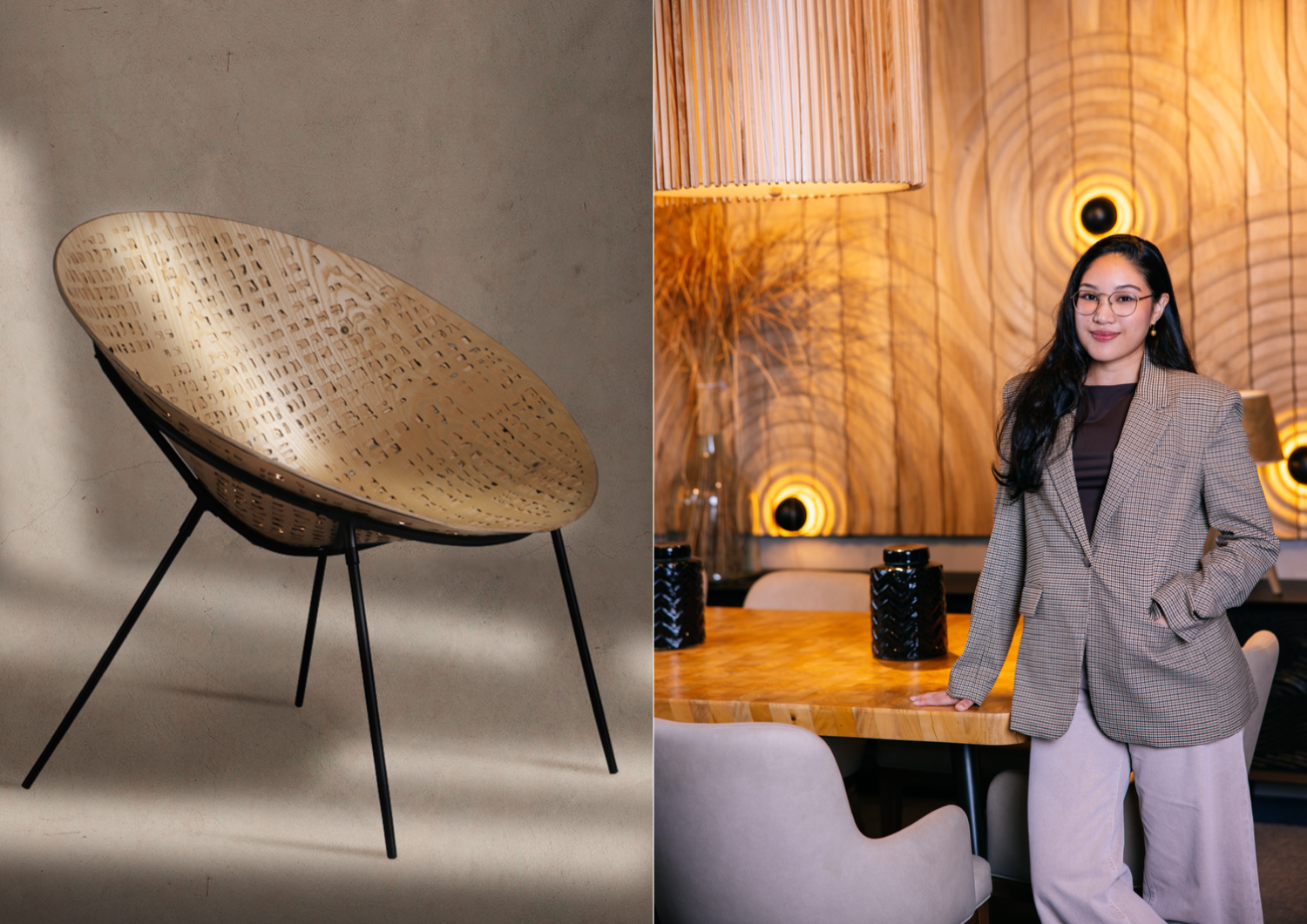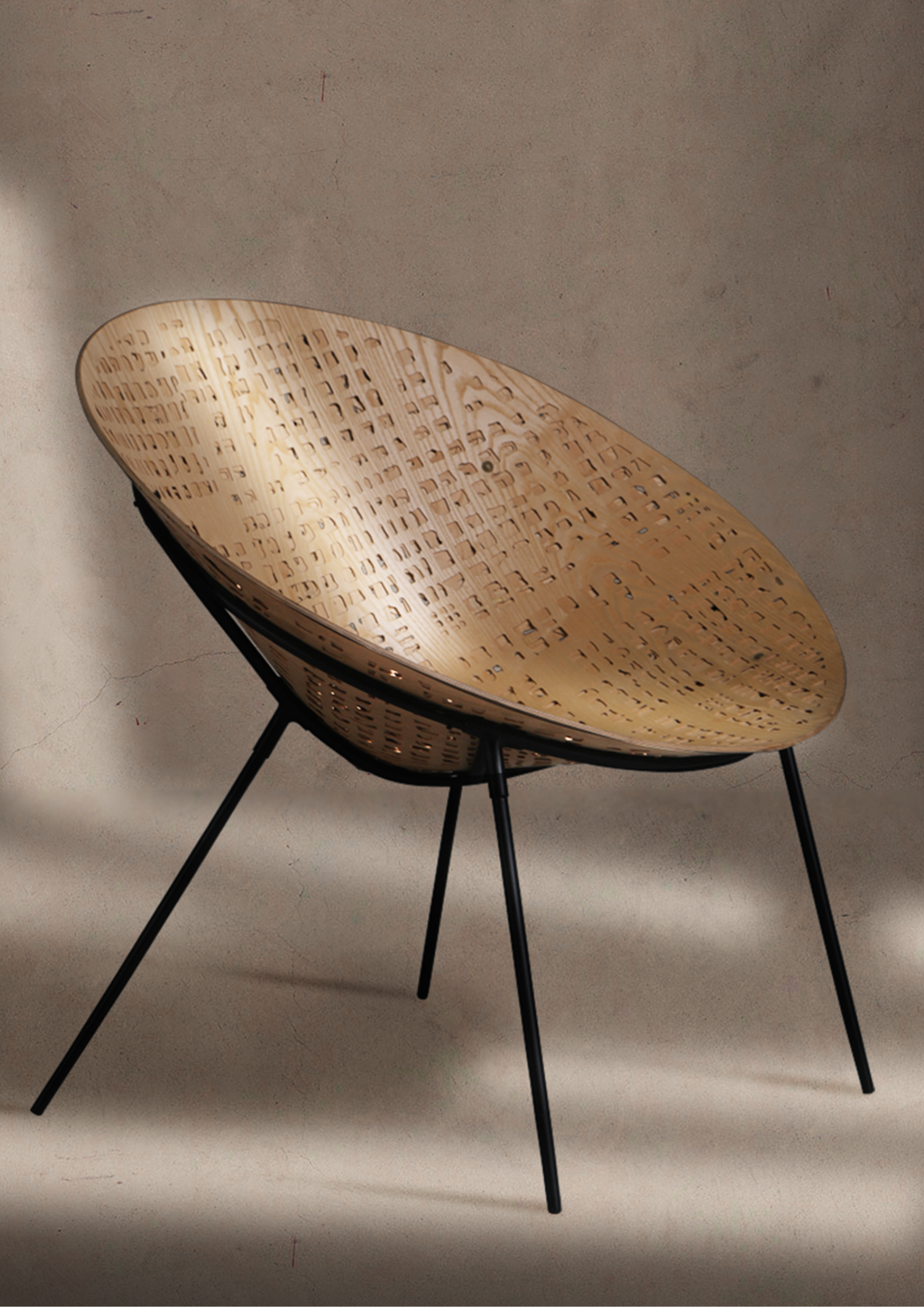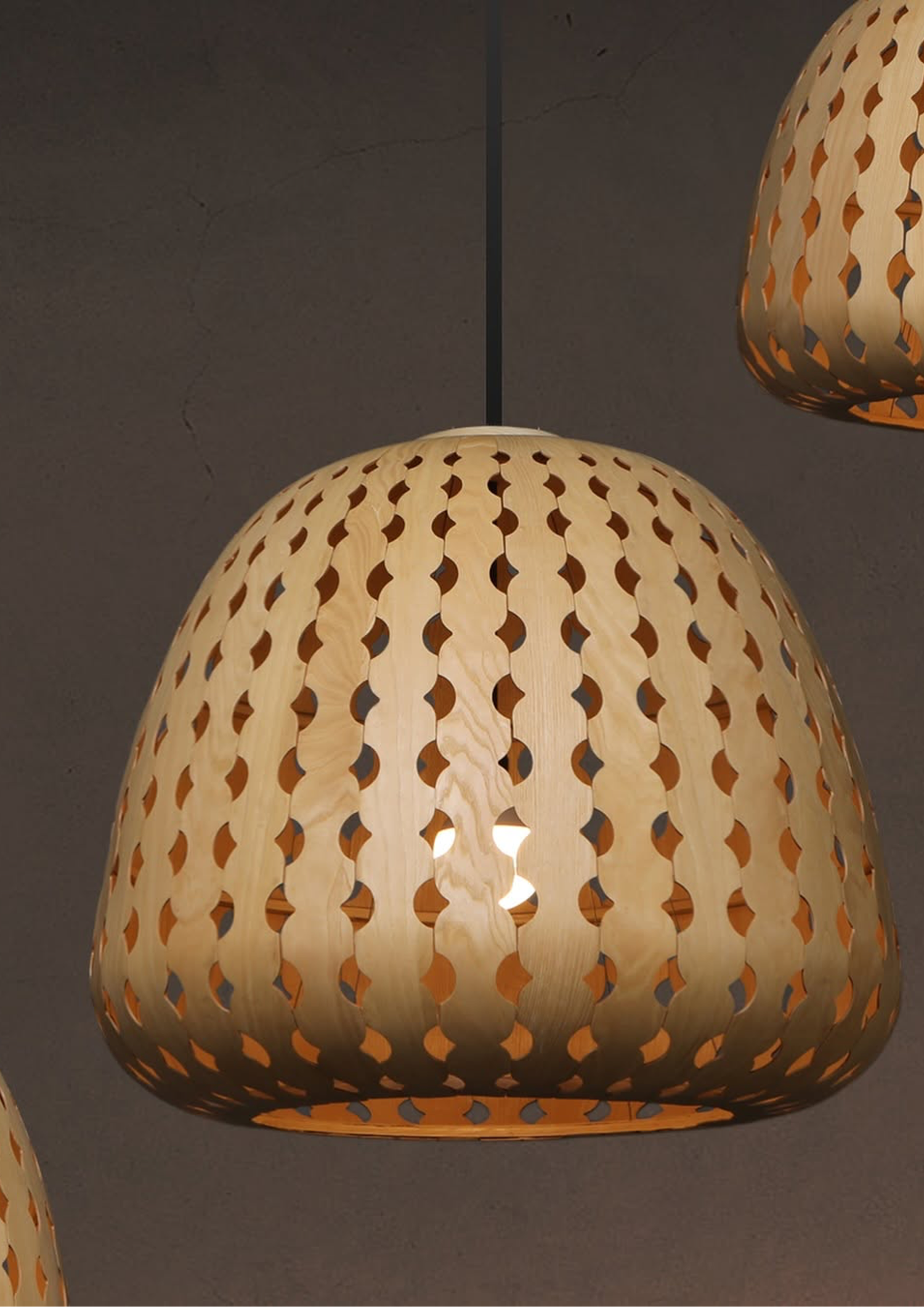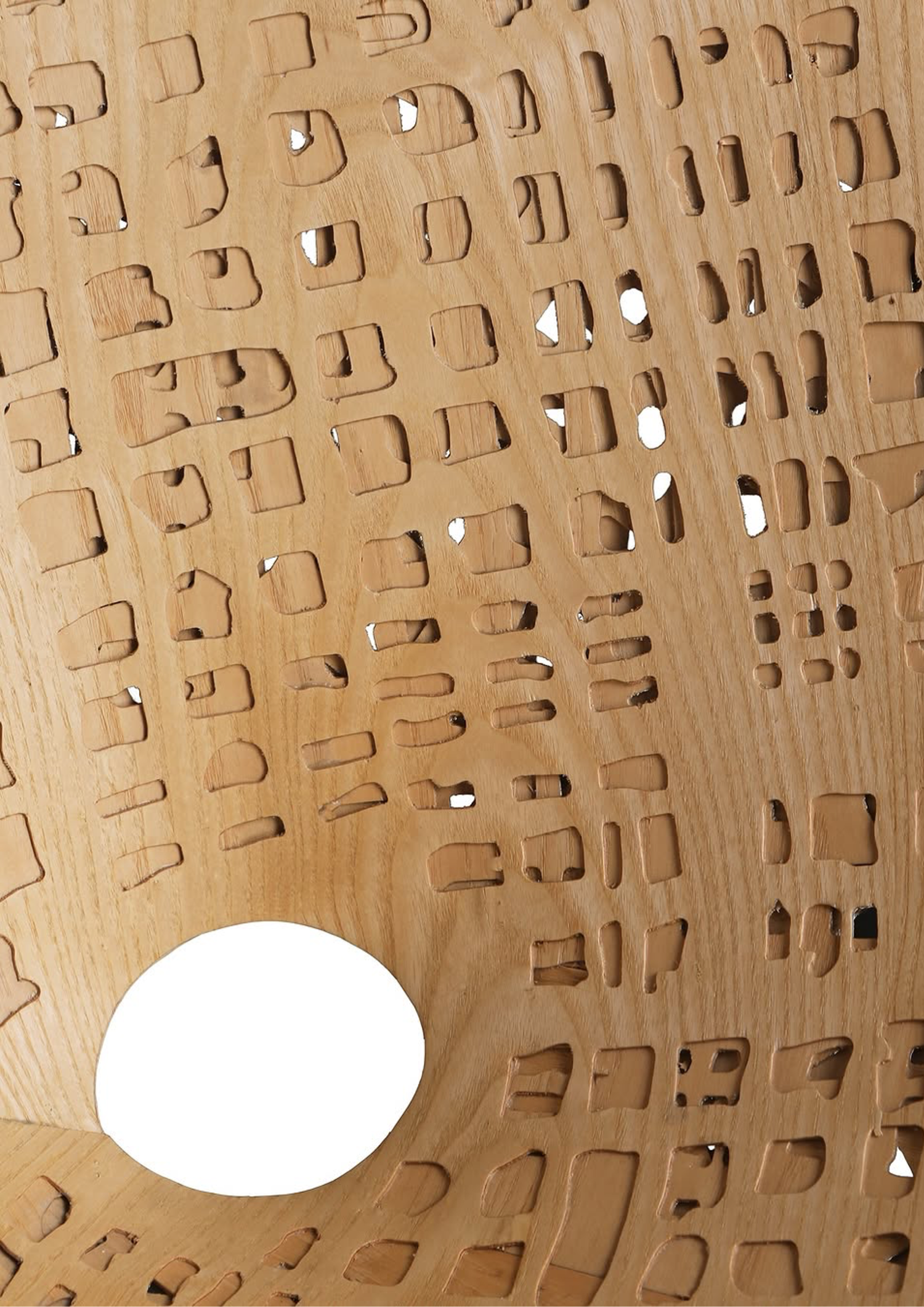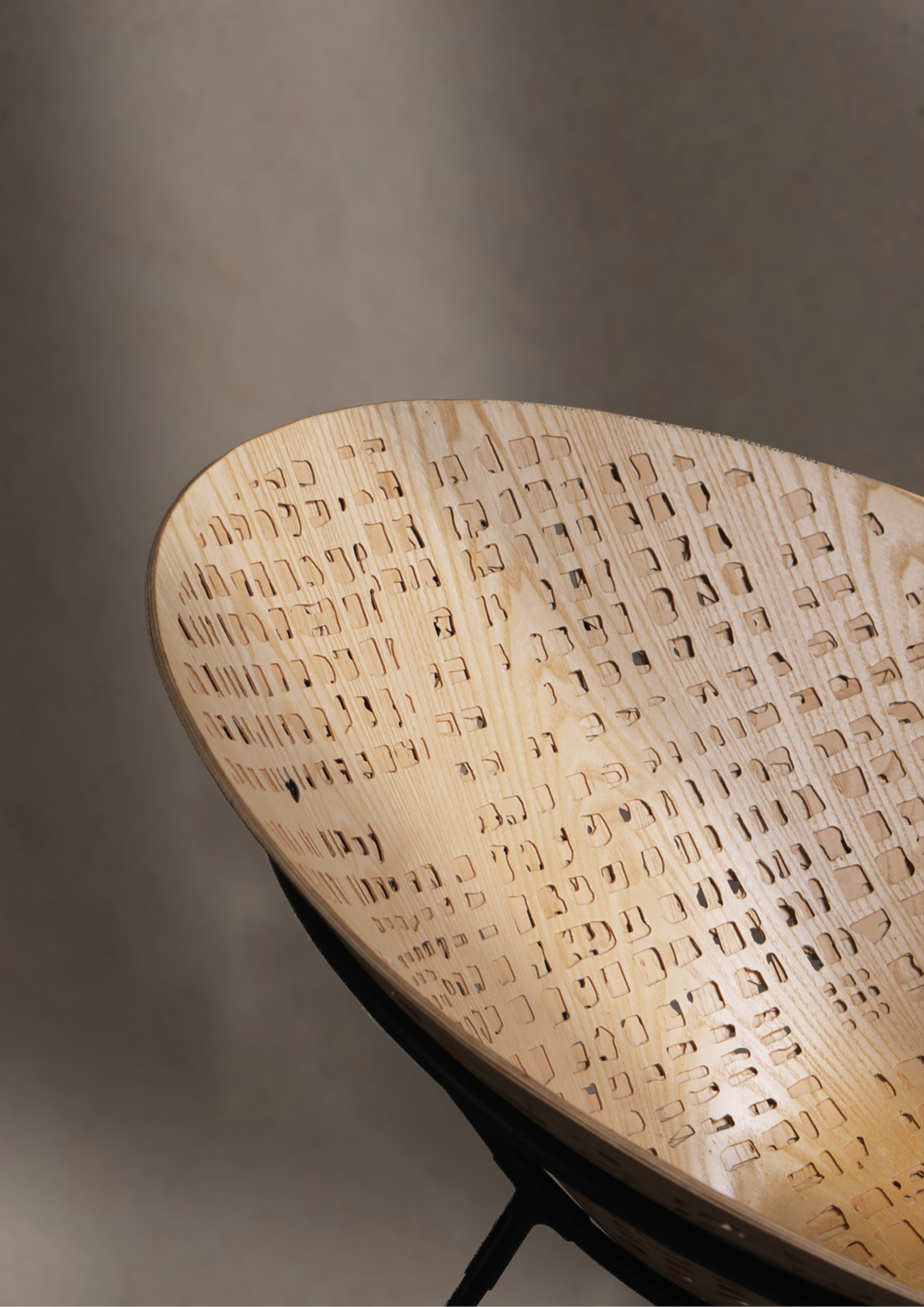Introduction and Interview Gabbie de la Cruz
Images Guia Viray
Filipino craftsmanship has taken the EMERGE at FIND Design Fair stage yet again! Curated by Supermama founder Edwin Low, and with the theme “Dialogue Through Design,” this year’s showcase is a conversation between people, cultures, materials, and time. The exhibition will feature works that push boundaries, from subtle gestures to often-overlooked details, celebrating thoughtful design and fresh perspectives. It will include some 150 works across 1,000 square meters from leading Southeast Asian design nations.
Five designers from the Philippines will form part of the exhibitors at EMERGE 2025, showcasing Filipino craftsmanship through pieces that reflect our heritage, culture, and tradition.
Our fourth conversation is with Guia Viray, Assistant Design Director at Triboa Bay Living. She takes us on a journey of figuring out her design process by dabbling in multiple disciplines, the familial design principles rooted in her work, and her constant search for beauty in the ordinary.
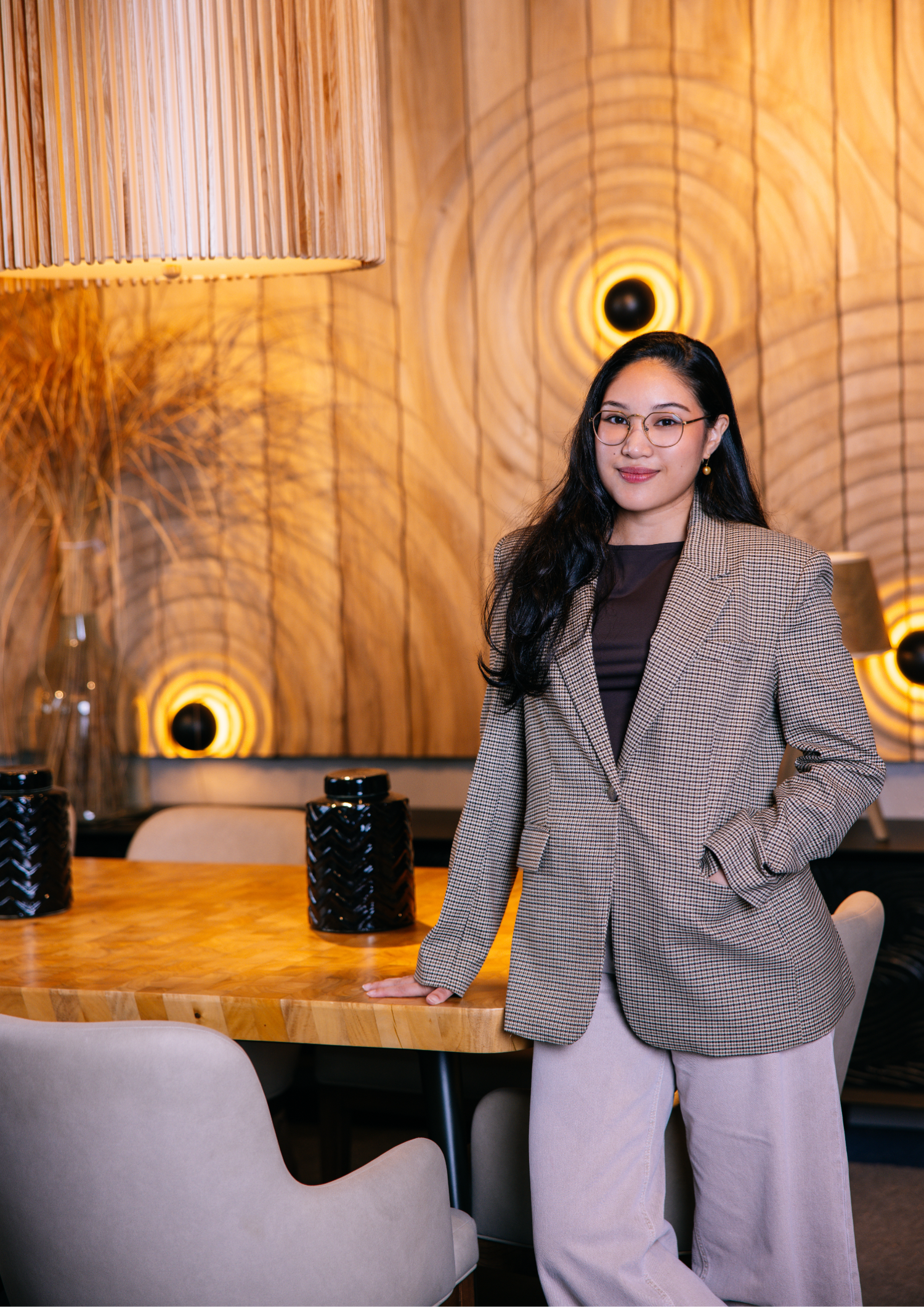

Nice to speak with you, Guia! You move between illustration, graphic design, and furniture with ease. How do these disciplines inform each other in your process, especially when shaping something tactile like a chair?
Guia Viray: Hi there! It’s actually through the practice of these three creative outlets that I’ve formed my own design process. I honed my artistic ability and how I reinterpret things around me through illustration, and graphic design taught me how to effectively express a feeling, an experience, an idea, or even a sentiment through visual cues. They’ve evolved to be part of my workflow, and my learnings extended into the creation of furniture, a very technical practice that involves materials, engineering, and people. My observation is that when you combine both creative and technical thinking, you get to create something tangible that is not only functional but also undeniably beautiful.
Hatch Chair and Tulip Hanging Light by Guia Viray
Your work with wood resists nostalgia, being neither rustic nor overly refined. What principles guide your treatment of this material, and how do you keep its earthy presence alive?
Triboa Bay Living’s tagline is “Rooted in the past. Grounded by the present.” I’d like to say that it perfectly describes the design language of the brand that my father has developed for years, and being surrounded by it from a young age has greatly influenced my work as a designer.
I find that our most successful designs carry a hint of nostalgia in them, with reinterpretations performed to align with a modern narrative. We like to play a bit with our audience’s love for the familiar, so our pieces don’t feel alien to them. This, while keeping in mind that design should be timeless, is a great way of getting people to relate and live with your art.
Wood is our chosen main material. Its natural beauty easily shines through in its color, grains, feel, and flexibility. Admittedly, for a company that’s been working with wood for three decades, you’d think you’d know the ins and outs of it, but no. The material comes with little surprises of its own, presenting itself in different ways when experimenting with various designs.
As Assistant Design Director at Triboa Bay Living, you’re embedded in both creative and production contexts. How do you navigate the tension between artistic intuition and manufacturing constraints?
My answer is going to be straightforward: If a manufacturing constraint can’t bring an artistic intuition to life, I move on to the next concept. On the flip side, I believe it’s totally fine to create high-quality basics as well. Every space needs basic pieces that will allow the more artistic pieces to shine!
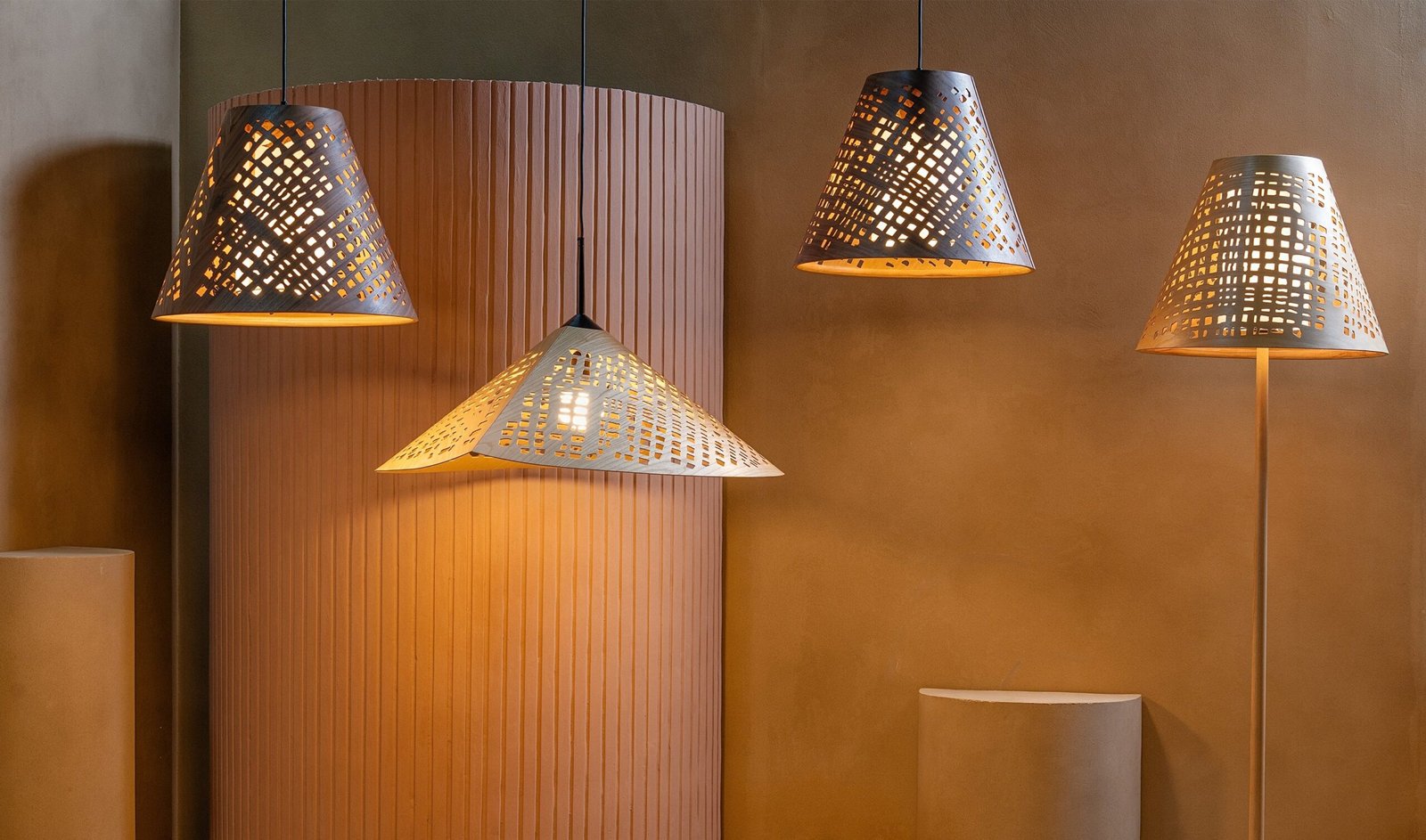

Your Hatch Occasional Chair reinterprets cross-hatching, a graphic technique, into structure. What led you to that translation, and what does it reveal about your approach to form and repetition?
This collection is a result of my experimenting with cut patterns on veneer. The pattern is actually a result of zooming in on open-weave fabric and tracing the holes in between the weaving.
I used the concept of cross-hatching in illustration, wherein a single layer of cross-hatching is used to highlight where light hits an object, contrasted with several layers of hatching to show shadow. This is seen in my collection, where the Hatch Lights use only a single layer of bent veneer, whereas the Hatch Occasional Chair is layered with three veneer pieces, and the patterns are overlaid randomly one on top of the other. This was essential to reinforce the strength and to add more depth to the piece.
Details of the Hatch Chair
What a disciplined process! In the EMERGE showcase, where material innovation is a central concern, what do you hope audiences will notice about your handling of veneer, not just technically, but emotionally?
Veneer is the star! I wanted the pattern and ash veneer to shine through, highlighting its lightness, grains, and curves, which brings the simple silhouette. My only hope is that people will recognize its honesty and connect with its understated beauty. •
EMERGE 2025 will be at Singapore Design Week’s FIND Design Fair Asia, happening from September 11 to 13 at the Marina Bay Sands Expo and Convention Centre.
